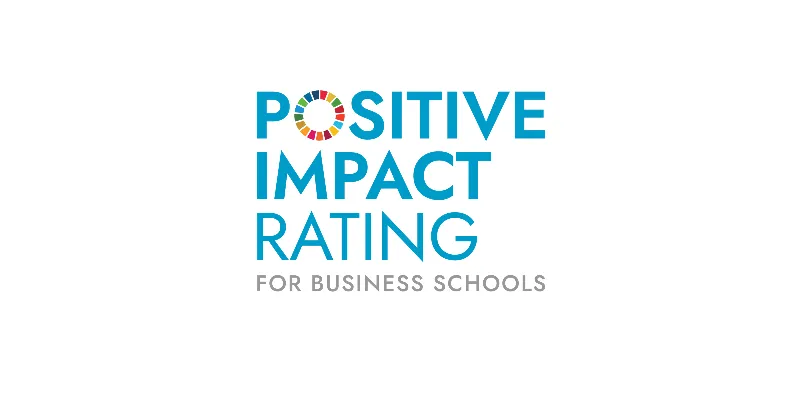The Grossman School of Business at the University of Vermont was recognized for its social impact and sustainability achievements when the Positive Impact Rating (PIR) results were released today at the UN PRME Global Forum. The Grossman School of Business was one of 47 business schools from 21 countries worldwide that took part in the rating this year and achieved Level 4, making it a "Transforming School" within the PIR.
The new recognition joins several other honors Grossman has recently received. Its Sustainable Innovation MBA (SI-MBA) program has been ranked the No. 1 “Best Green MBA” by Princeton Review for three consecutive years in 2020, 2019 and 2018. In 2019, Corporate Knights, a leading sustainability magazine, rated SI-MBA No. 4 internationally in its Better World MBA rankings and No. 1 in the U.S.
The PIR is a rating conducted by students and for students. For the second time, students worldwide assessed their business schools on how they perceive their positive impact in the world. The positive impact of business schools goes beyond their contribution to business and the economy; it addresses the need for their positive impact for society.
Students assessed how Grossman addresses societal and sustainable challenges and prepares its students to be responsible business leaders. The data collection within the school was organized and led by students, who distributed the PIR survey across campus to their fellow students.
Participating in the PIR demonstrates the value Grossman gives to student feedback and voice. Grossman Dean Sanjay Sharma said: “Our focus is on educating students to address global sustainability challenges and every year we learn from our students who are passionate about making the world better, and from our many stakeholders, and we continuously strive to improve. While we do not focus on rankings, it is gratifying to be recognized as one of the world’s best as an outcome of the combined efforts of our faculty, staff and students engaged in this remarkable program.”
The rating survey asks students 20 questions in 7 relevant impact dimensions that sit within 3 areas: Energizing, Educating, and Engaging. The overall PIR score of the business school is used to position the schools across 5 levels. The different levels refer to the developmental stage of the business school, rating it by a certain level of achievement. Business schools are provided with a defined social impact and a tool that they can use for change.
Katrin Muff, President of the Positive Impact Rating Association, said: “PIR is designed as a tool to improve and transform business education. It enables schools to understand what a positive impact for society is, according to their students. The PIR highlights the potential for improvement, even for leading schools.”
The PIR was created by concerned business school experts together with global NGOs - WWF, Oxfam, and UN Global Compact. International student associations oikos, AIESEC and Net Impact are also part of the PIR, which is supported by VIVA Idea and Fehr Advice.
Find the full PIR 2021 report here.
